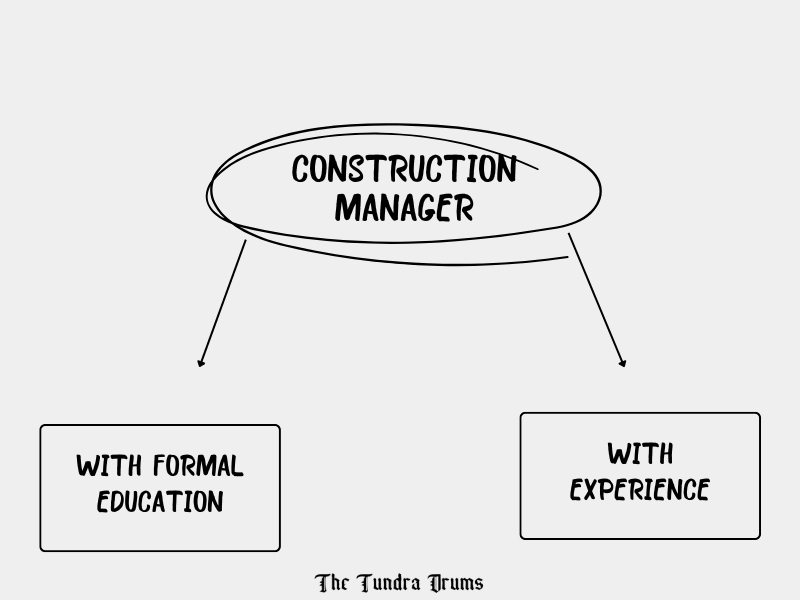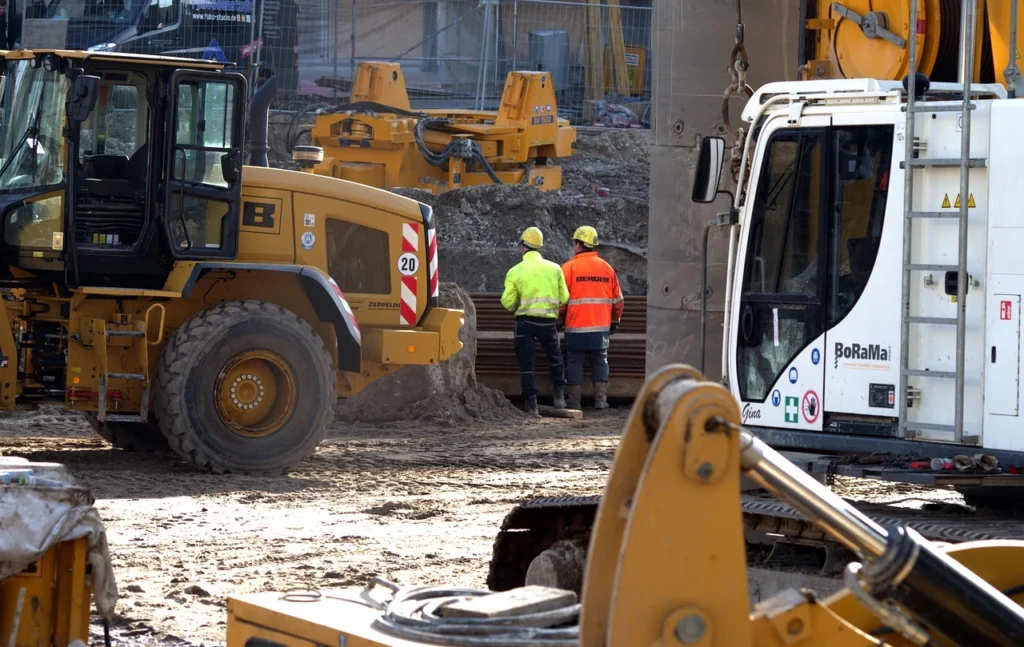Many students select the construction management field as their career but don’t know how to step into it. They got stuck on how to become a construction manager and which scenario was best for their career goals. We have covered this topic in the article where you can find how to achieve this post with or without experience and which degree you should do along with some essential skills to be a project manager. Keep on reading so you will get your answer!
What Degree is Best for a Construction Manager?

If you’re serious about becoming a construction manager in a company, the educational path you choose is essential. While experience is important, the right education can give you a competitive edge in the field.
1. Bachelor’s Degree: The Standard Path
- A Bachelor’s Degree in Construction Management is the most common and widely accepted route.
- This degree typically takes 4 years to complete and covers important topics like construction law, materials science, project management, and safety regulations.
- Some universities offer specialized programs in construction project management or site management, which can further fine-tune your expertise.
2. Master’s Degree: For Career Growth
- A Master’s Degree in construction management can be a great way to advance in your career or specialize in a niche area, such as sustainable building or construction technology.
- A master’s degree takes an additional 1–3 years, but it can open doors to senior roles, including managing large-scale projects or heading entire construction firms.
3. Trade Schools and Associate Degrees: A Practical Alternative
- If you’re looking for a faster, more affordable entry point, trade schools offer associate degrees in construction management, which can be completed in 2 years.
- This path can also lead to an entry-level project manager position with a solid foundation in construction operations.
Pro Tip: Not ready for a full degree? Start with certifications like OSHA safety courses or AutoCAD training. These skills are highly valued and can set you apart.
Must-Have Skills to Become a Construction Manager
Becoming a great construction manager involves more than just technical expertise. You also need to master a blend of soft and hard skills that will allow you to successfully manage people, resources, and timelines.
Key Skills:
- Leadership: You will lead teams and contractors, so strong leadership skills are essential to maintaining efficiency and morale.
- Time Management: Construction managers must juggle multiple deadlines, prioritize tasks, and keep projects moving on schedule.
- Problem-Solving: Whether it’s an issue with a contractor or an unexpected delay, problem-solving is a daily part of the role.
- Budgeting and Financial Management: Understanding how to keep a project within budget, manage costs, and allocate resources wisely is crucial.
- Knowledge of Construction Technologies: Familiarity with tools like project management software and building information modeling (BIM) is increasingly important.
How Long Does it Take to Become a Project Manager?
The time required to become a construction manager depends on your chosen path:
With a Degree:
- Bachelor’s Degree + Experience: Around 8 years (4 years for the degree + 4 years of work experience).
- Master’s Degree Path: Add 1–3 years for specialized roles.
Without a Degree:
- Experience-Only Path: Expect to spend 10+ years gaining hands-on experience in roles like foreman or site supervisor.
How to Become a Construction Manager With or Without Experience?

There are two main routes to becoming a construction manager: one through formal education and the other through gaining experience in the field. Both paths can lead to successful careers, but each has its own set of challenges and benefits.
1. For Those With Experience:
If you already have years of experience in construction, here’s what to do:
- Enhance Your Existing Skills: Highlight your leadership, budgeting, and problem-solving skills in your resume.
- Get Certified: Certification, like the Certified Construction Manager (CCM) or Project Management Professional (PMP), can validate your skills and give you an edge over other candidates.
- Network in the Industry: Attend trade shows, join professional associations, and seek mentorship from established managers.
2. For Beginners:
If you’re just starting, consider these steps:
- Internships and Apprenticeships: Gaining hands-on experience early on is key. Many construction management programs offer internships, and these can often lead to permanent positions.
- Start in an Entry-Level Role: Look for positions like construction assistant or project coordinator to build your experience.
- Earn a Degree or Certification: If you don’t have one already, consider earning a bachelor’s degree or trade school certification to accelerate your career.
Earnings Based on Experience:
- Entry-Level: Around $55,000 annually or $20 per hour.
- Mid-Level (5–9 years): Salaries average between $70,000–$82,000.
- Experienced Managers: Top earners can make up to $169,070 annually, especially in high-paying states like California and New Jersey.
Factors Affecting Salary:
- Location: Urban areas and high-demand states often pay more.
- Industry: Specialized sectors like healthcare and industrial construction offer higher salaries.
Want to maximize your earnings? Focus on high-demand regions like Texas, Florida, or California, and aim for certifications like PMP (Project Management Professional).
Job Outlook for Construction Managers
The future is bright for construction managers. With infrastructure projects on the rise, demand is steadily growing.
Growth Statistics:
- The U.S. Bureau of Labor Statistics (BLS) predicts 8% growth by 2032, adding 35,000 new jobs.
- Over 476,700 construction manager jobs currently exist, with major hubs in California, Texas, and Florida.
Fun Fact: California alone employs nearly 33,000 construction managers, making it the top state for opportunities.
Certification and Licensing for Construction Managers
While not mandatory, certifications can significantly boost your career prospects.
Top Certifications:
- Certified Construction Manager (CCM):
- Issued by CMAA, this certification requires a degree and 4–8 years of experience.
- Costs range from $600–$700.
- Project Management Professional (PMP):
- Globally recognized, it focuses on planning and execution.
- LEED Accreditation:
- For those interested in sustainable construction, this certification is invaluable.
Recertification Costs: Certification holders need to renew credentials every three years for around $200.
Conclusion
If you want to enter the field of construction management directly or planning to transition from another role, there are clear paths to success. With the right education, experience, and certifications, you can work your way up to managing high-profile projects and earning a solid salary.
FAQs
1. How long does it take to become a construction manager?
It typically takes 8–10 years, including education and experience.
2. How do I start a career in construction management?
Start with an entry-level position in construction, gain experience, and pursue a degree or certification.
3. Can I become a construction manager without a degree?
Yes, you can. Many construction managers start with several years of experience and work their way up.
4. How much do construction managers earn?
The salary ranges from $55,000 to over $169,000 annually, depending on experience and location.
5. Do I need certifications to become a construction manager?
While not mandatory, certifications like CCM or PMP can significantly enhance your job prospects and earning potential.












